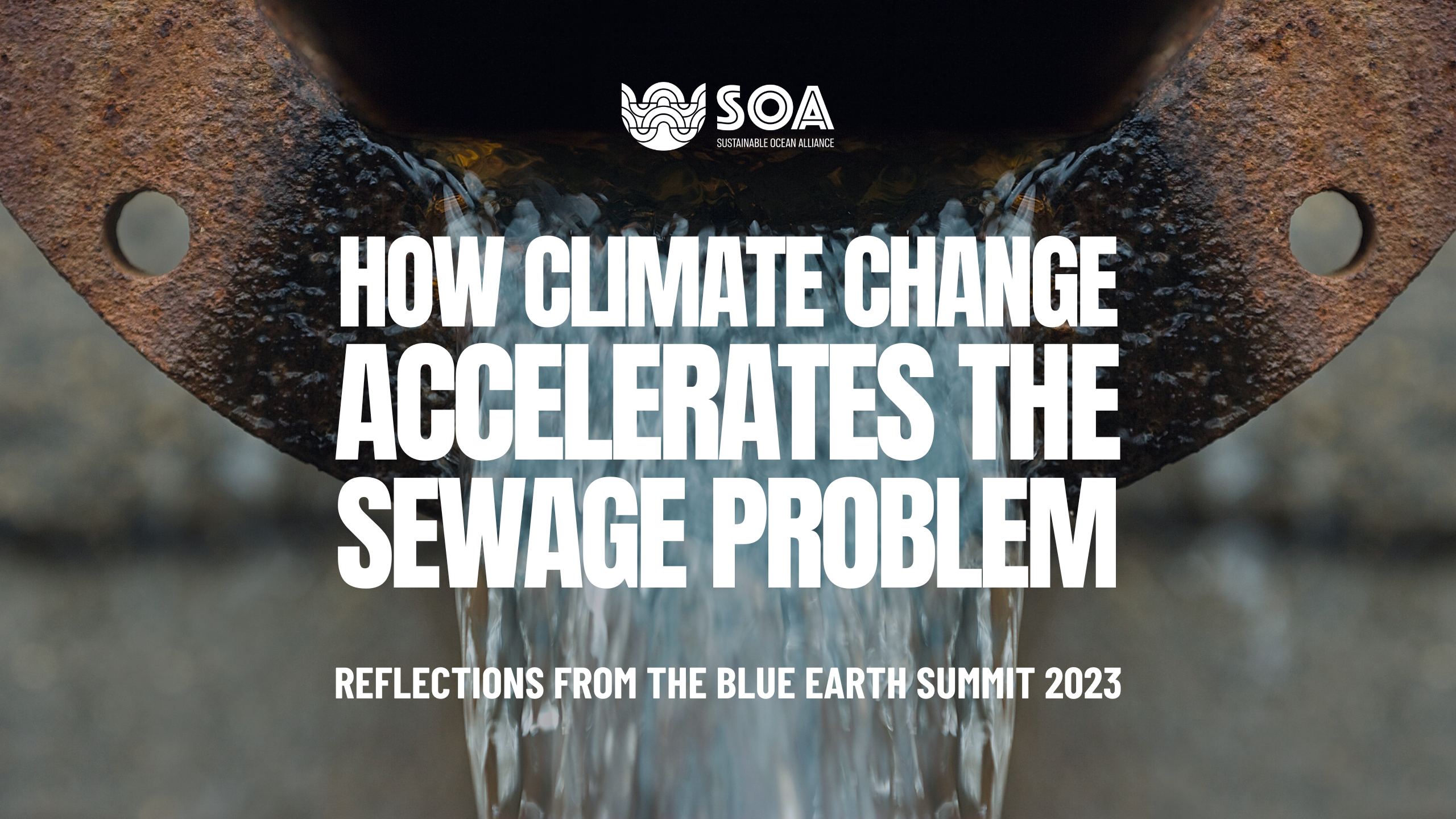The 2023 Blue Earth Summit was recently held in Bristol, U.K. to harness the power of being outdoors and bring people together to build a more positive future for our planet.
SOA Germany Hub Leaders—Francielly Monteiro and Leonie Meier—were in attendance to represent Sustainable Ocean Alliance (SOA) at this purpose-driven summit. Learn more about their experience in the blog below.
 Before embarking on our trip to Bristol for the Blue Earth Summit, neither of us from SOA Germany would have thought we would learn so much about the interconnectedness of climate change, algal blooms in rivers and lakes, and sewage.
Before embarking on our trip to Bristol for the Blue Earth Summit, neither of us from SOA Germany would have thought we would learn so much about the interconnectedness of climate change, algal blooms in rivers and lakes, and sewage.
Of course, this conference was about all that and so much more. Witnessing the gathering of incredible individuals—including entrepreneurs, researchers, creatives, and activists—all dedicated to making the world a more just place has been profoundly inspiring.
These brilliant and diverse minds are all engaged in ideas and initiatives that are actively reshaping the narratives of our future. Narratives about access to nature, who benefits, and who is left behind. Narratives about purpose over profit and giving nature a seat at the decision-making table (read more about how one company chose to give nature a voice—and a vote—here).
 Now back to sewage... All summer long, activists around the U.K. were protesting water companies that were found pillaging national waterways by routinely dumping untreated sewage.
Now back to sewage... All summer long, activists around the U.K. were protesting water companies that were found pillaging national waterways by routinely dumping untreated sewage.
The outcome?
Huge volumes of contaminated effluent waste and run-off were discovered, marking the U.K. as the bottom-ranked in Europe for bathing water quality. A damning report by a parliamentary committee, the House of Commons Commission, labeled the U.K.'s rivers as a dangerous ‘chemical cocktail’ of sewage, agricultural waste, and plastic.
Apart from chronically underfunded infrastructure, the U.K. sewage system also suffers greatly from the impacts of climate change. During heavy rain and storms, the capacity of sewage systems is sometimes insufficient, especially when—as we saw after the heatwave in 2022—dried-out soil cannot efficiently absorb excess water quickly. This then can lead to the overflowing of sewage treatment plants, and thus, the flooding of houses and streets. Therefore, excess wastewater is occasionally allowed to be discharged directly into our waterways—but quite a few sewage treatment plants have been criticized for overdoing it. In 2022, untreated sewage flowed into the sea and rivers for a total of 1.75 million hours.
Contaminated water is obviously a huge problem for ocean health—even more so with the U.K. being an island surrounded by ocean. Poor water quality damages ocean ecosystems and habitats like kelp forests and seagrass beds, reduces marine biodiversity, and impacts the ocean’s ability to store carbon. Slicks of sewage can cause massive algae blooms that starve the water of oxygen and result in the increased mortality of aquatic species.
At least a glimmer of hope for the rest of Europe? Recent water quality reports showed minimum standards were met at more than 95% for 21,600+ observed bathing sites (Source: European Environment Agency). In Austria, Malta, Croatia, Greece, Cyprus, Denmark, and Germany, 90% or more of bathing waters met the ‘excellent’ quality standard.
At the Blue Earth Summit, anti-sewage activists ran a workshop on community activism, and we found their message really inspiring: whether you live by the ocean or not, the water surrounding us in our households, cities, rivers, and lakes will eventually end up in the ocean in one way or another.
Our main takeaway? Everyone can play a part in raising their voice to stop companies from profiting on the destruction of our environment. At SOA Germany, we have started to do so by joining the global protest against another destructive force: deep-sea mining. Read more about it here.
Take Action
If you love the ocean and feel inspired too, join us!
We are working to provide a platform for young professionals engaged in ocean action, and all those who seek to ensure that future generations can benefit from a healthy ocean. With Germany as a major player in global ocean policy, we aim to add youth voices to national and international policy debates.
Sign up here and follow us on Instagram (@soa.germany) and Linkedin if you want to know about upcoming events and initiatives.
Written by Francielly Monteiro and Leonie Meier




 Before embarking on our trip to Bristol for the
Before embarking on our trip to Bristol for the  Now back to sewage... All summer long, activists around the U.K. were protesting water companies that were found pillaging national waterways by routinely dumping untreated sewage.
Now back to sewage... All summer long, activists around the U.K. were protesting water companies that were found pillaging national waterways by routinely dumping untreated sewage.
Comments